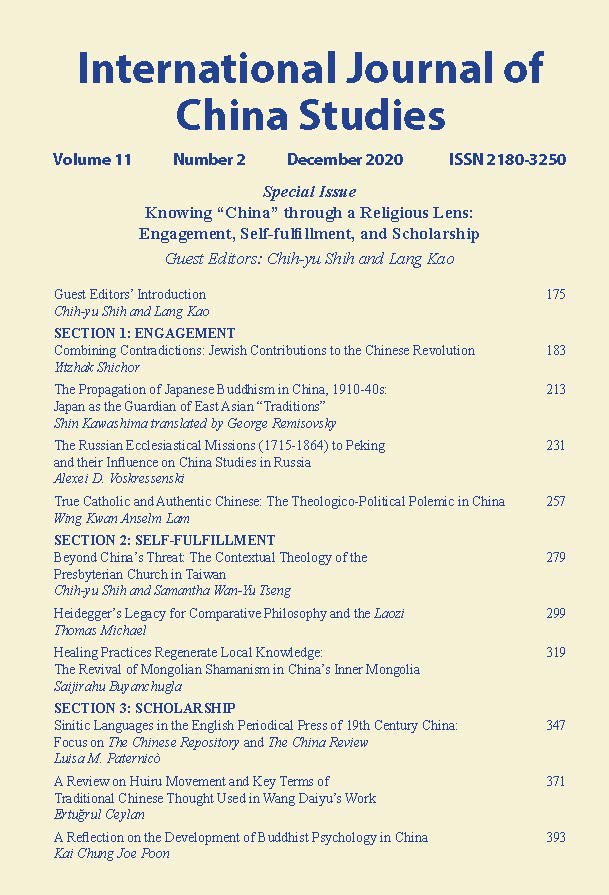The Propagation of Japanese Buddhism in China, 1910-40s: Japan as the Guardian of East Asian "Traditions"
Keywords:
Japanese Buddhism, Chinese Buddhism, Sino-Japanese Relations, Manchukuo, 21 DemandsAbstract
This research examines the propagation of Japanese Buddhism in China in the first half century of 20c. From the Japanese government’s point of view, Buddhism is a useful “device” to understand local society and to make propaganda or penetrate into local society in China. In 1920, Japan organized religious groups including Buddhism to make some movements on cultural exchanges and friendship activities with Asian countries and colonies including China. In the 1930s, Japan occupied Manchuria and built the puppet state, Manchu-kuo. Buddhism and its organization were the important “device” to manage the Japanese society there and were expected to penetrate in Chinese society. However, it was so difficult to set some goals on Chinese local society. This research illustrates the processes in the negotiation about the right of propagation of Japanese Buddhism in China, with the Chinese government, and introduces the views and observations on Chinese religious society by Japanese Buddhism, in order to consider the factor of “religion” on Chinese modern history.

